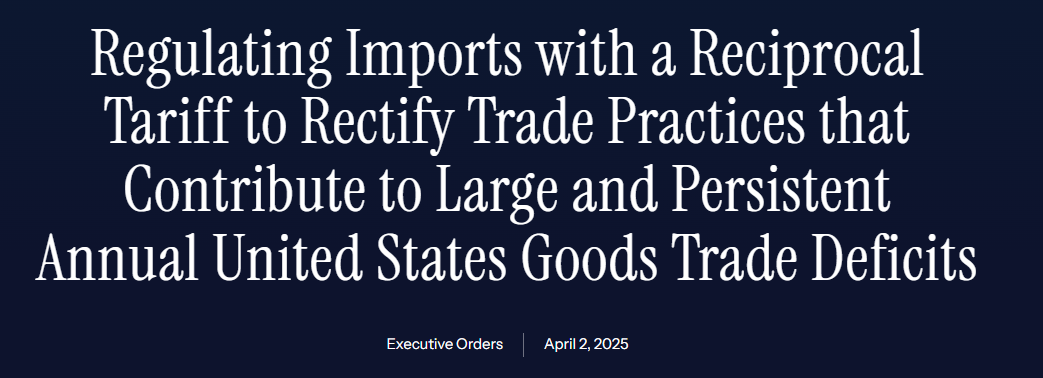Breaking New - US imposing a 46% reciprocal tax

Breaking New - US imposing a 46% reciprocal tax
Businesses and the Vietnamese economy will be significantly impacted by the US's 46% reciprocal tariff on Vietnamese goods, particularly in important export industries. The major effects are as follows:
1. Effects on important export industries
Footwear and textiles: With over half of all export revenue, the US is the biggest market for the Vietnamese textile and apparel sector. Since the cost of goods has skyrocketed due to high taxes, Vietnamese commodities are no longer as competitive as those of nations like Bangladesh (37%) or Mexico (tax-free under the USMCA) that have not yet been subject to high taxes.
Furniture and wood: The American market is also a major source of income for the Vietnamese wood sector. Hundreds of thousands of industry workers will be impacted by the cancellation or drastic reduction of orders brought on by the tax rise.
Aquaculture: Vietnam's exports of shrimp, pangasius, and other aquatic products to the US will become less competitive. Customers in the US might start purchasing goods from other nations like Ecuador, India, or Indonesia.
Electronics and components: Samsung and foreign direct investment (FDI) companies that manufacture components in Vietnam may be impacted, requiring them to change their business plans or look for alternative export markets.
2. What challenges will Vietnamese businesses encounter?
Higher expenses and fewer profit margins: Many businesses will have to cut prices to keep clients when taxes are high, which will result in smaller profit margins or losses.
Reduced orders and market share risk: Because of lower taxes, competitors like Mexico, Indonesia, or African nations may overtake Vietnam in the US market.
Market pressure: Due to disparities in standards and requirements, businesses are compelled to look for new markets, whether they be domestic, in the Australia, EU, or in the Middle East.
Risk of job losses and poor growth: Millions of workers in export-related industries may be impacted if many companies are forced to reduce staff in order to save money.
3. Effect on the Economy of Vietnam
Export decline: After China, the US is currently Vietnam's second-largest export destination. The trade balance is impacted and GDP growth may stall when high taxes result in a decline in exports to the US.
Effect on Foreign Direct Investment: In order to avoid paying taxes, foreign businesses who invest in Vietnam to make goods for export to the US might think about moving to Indonesia or India.
Stock market and exchange rate: A rise in the USD/VND exchange rate could result from fewer FDI inflows, which would put pressure on inflation. Concerns among investors may cause the stock market to drop.
4. What actions should enterprises take in response?
Find strategies to export through a third party or bargain with US customers to share tax rates.
Increasing the domestic market or moving the market to Australia, Europe, or the Middle East.
Boosting product value and technology to preserve profit margins.
Using free trade agreements with countries like Australia and other regions to partially offset US market losses.
Source: Tron Group, AVBA, and White House announcement
https://www.whitehouse.gov/pre...
